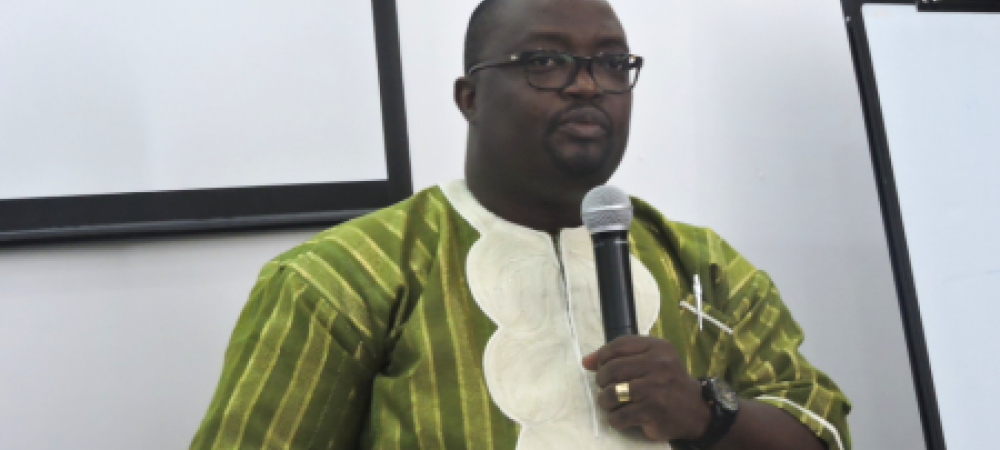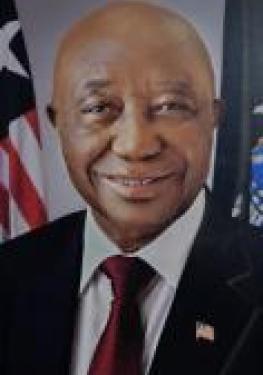
Monrovia – A joint effort aimed at transitioning the continent to green growth through Climate finance and banking institutions, has kicked-off with a two-day training of several banking institutions in Liberia.
The Liberian Bank for Development and Investment (LBDI), ECOBANK are among other banking institutions forming part of the training organized by the Environmental Protection Agency (EPA) in collaboration with the African Development Bank (AFBD).
The training is part of a follow-up to the request by the government of Liberia at the AfDB annual Meeting Susan to provide technical support for integrating climate change into its national development plan, Liberia Pro-Poor Agenda for Transformation (PAPD).
The Climate Financing training also focuses on strengthening banking institutions capacities to tap on global financing opportunities for projects in the development of the private and public sectors.
Additionally, the training seeks to provide a tailor-made support, strengthening the ability of sector experts to apply a climate-lens to their sect and access the relevance of sector projects for climate change adaptation and mitigation.
According to the EPA boss Nathaniel Blama, the government will partner with financial institutions in the private sector to enable the country benefit from global financial to support sustainable projects in the country.
Mr. Blama stated that most financial institutions are not aware of those opportunities globally, stressing that the Climate Financing training will enlighten their minds, provide the necessary tools and guide them in the process to take further action to strengthen the sector.
“The country has potentials in the area of climate change mitigation, especially in the renewable energy sector with the production of solar lights and rivers for the construction of hydro to supply electricity throughout and boost trade,” he said.
Liberia’s energy need is estimated at 1500 and the country currently has less than 100, so there is a need we tap into that grid to produce more to enable bigger institutions benefit. “All these big institutions like hotels run generators to keep their businesses running but if we have grids around the city and country it alleviates some of the burdens business people go through because the generator running has huge impact on the environment”.
“The protection of the coastal area, eco-system-based adaptation, wetlands and smart agriculture, creation of green zones and other potential are some opportunities that banking institutions can take advantage of in making the environment viable and lifting people out of the poverty”.
AfDB Country Manager, Orison AMU
Also speaking, AfDB Country Manager, Orison AMU, said climate Change and Green Growth are at the heart of the bank and its development goals as such it intends to light up and power Africa through its 5s, Feed Africa, Industrialized Africa, Integrate Africa and Improve Livelihood for Africans.
Mr. AMU stressed the need for collaborative efforts in addressing the needs of climate change through financial resources.
He indicated barriers that that the absence of adequate policies and regulatory environments in many countries for SMEs participation in green business, limited understanding of climate-related opportunities and the lack of dedicated financial SMEs instruments among as barriers limiting private sector participation. “In spite of these challenges, recent studies suggest that successful climate solutions in key sectors like distributed renewable energy generation, energy efficiency and climate-smart agriculture require a strong role for the local private sector especially small and medium sized enterprises (MSEs)”.
The AfDB Country Manager stressed the need to encourage efficient action at SMEs scale level by unlocking greater volume of financeable proposals to facilitate access to climate finance in Africa.
“It is necessary we build the capacity of SMEs to be able to develop strong pipeline of climate-resilient and low-carbon proposals that can generate financial returns thereby accelerating climate change action”.
Mr. AMU challenged participants’ mainly financial institutions’ experts to further foster partnership to access global financing projects to improve the private sector adding that the AfDB pledged its full commitment to ensuring that the continent including Liberia will achieve more.
In 2015, Liberia submitted its intended Nationally Determined Contributions (INDC) to the UNFCCC, focusing on set priorities for both climate change mitigation and adaptation in agriculture and fisheries, energy, coastal zone management and transport and infrastructure.



